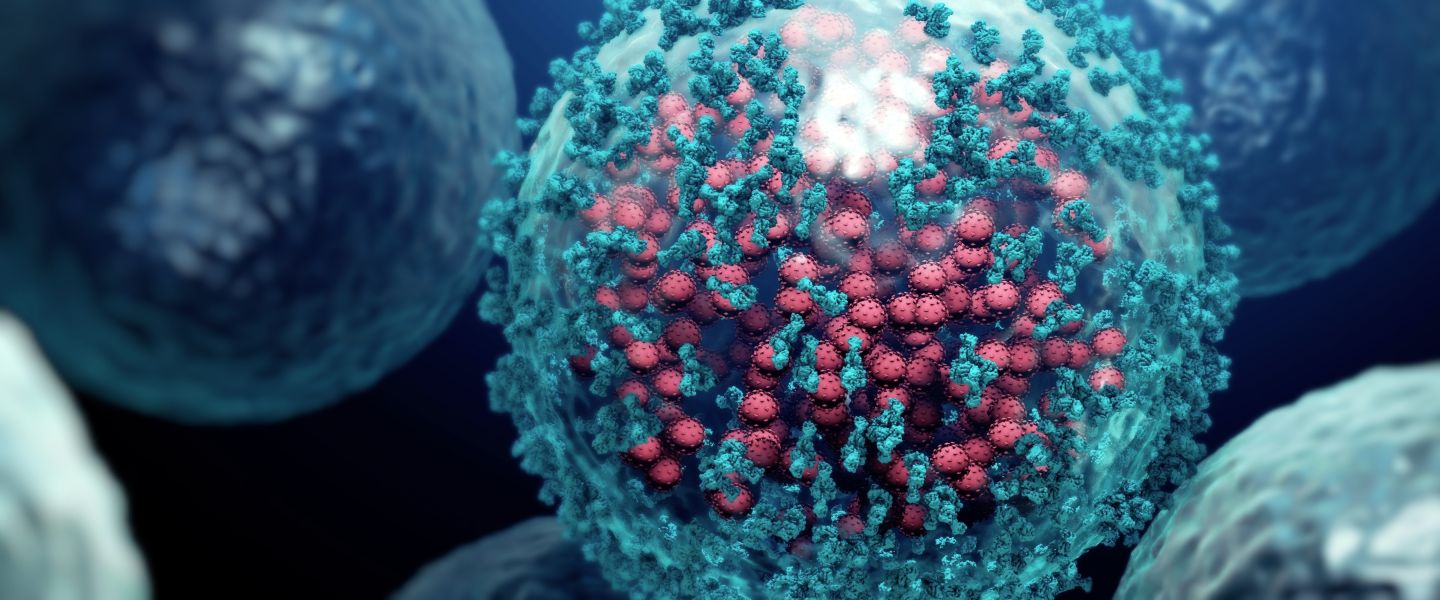SHARING / REPOSTING GUIDELINES: We're very happy to have posts/articles shared as direct links.
However, if you are replicating and re-posting information from this website or our posts, Abbey requests that you:
A) Only ever share articles in part (not in full). (eg. You can lift a paragraph as a way of introducing your readers to the topic) B) Be sure to always provide a direct link/URL back to the full original article here on the MyHealingCommunity.com website. Thanks in advance for your co-operation when sharing and re-posting any and all information that appears on this website.
Inhibiting mTOR can paradoxically lead to decreased sensitivity to chemotherapy by promoting the survival of resistant cancer cells.
The article "mTOR inhibition attenuates chemosensitivity through the induction of chemotherapy-resistant persisters" explores the complex role of mTOR inhibition in cancer treatment.
mTOR (mechanistic target of rapamycin) is a key regulator of cell growth and proliferation. It integrates signals from nutrients, growth factors, and cellular energy status to control several downstream processes, including the cell cycle. It forms two distinct complexes: mTORC1 and mTORC2, each with different roles and regulatory mechanisms.
The article says that inhibiting mTOR can paradoxically lead to decreased sensitivity to chemotherapy by promoting the survival of resistant cancer cells. This study demonstrated that when cancer cells were treated with mTOR inhibitors and chemotherapy agents, the subpopulation of cells that survived the treatment significantly increased.
All the chemotherapy agents used in this study were drugs that target processes that are critical for cell division,
- Doxorubicin (anthracycline)
- Selinexor (XPO1 inhibitor)
- Paclitaxel (antimicrotubule)
- Etoposide (topoisomerase II inhibitor)
- Mitoxantrone (anthracycline)
- Irinotecan (topoisomerase I inhibitor)
- Gemcitabine
- 5-fluorouracil
- Carboplatin
This research indicates that mTOR inhibition can induce a state in cancer cells that allows them to withstand chemotherapeutic assault.
Alongside the chemotherapy drugs, the researchers used a combination of mTOR inhibitors (such as rapamycin). It was observed that while the combination killed a significant portion of the cancer cells, it simultaneously led to the emergence of a smaller but robust population of cells that persisted after treatment.
The Mechanism of Resistance Induction
Resistance induction was linked to mTOR inhibition's ability to push the cells into a "drug-tolerant persister" state. These cells exhibited senescence characteristics but were not actively proliferating, which typically reduces the efficacy of chemotherapy that targets dividing cells.
Gene Expression Studies and Pathway Identification
Gene expression analysis revealed significant changes in the expression profiles of cells treated with mTOR inhibitors. These changes were indicative of a shift in cellular state that supports survival under chemotherapeutic stress, and these changes pointed to several key pathways modulated by mTOR inhibition, contributing to the development of chemoresistance.
1) Autophagy
Many patients working with integrative oncology practitioners already know how to inhibit autophagy with hydroxychloroquine and loratadine when using mTOR inhibitors in their protocol. For everyone else, one of the prominent pathways up-regulated by mTOR inhibition is autophagy. Usually, autophagy acts as a survival mechanism under stress conditions by recycling cellular components and is wonderful for someone who is not undergoing chemotherapy. In the context of mTOR inhibition during chemotherapy, enhanced autophagy was observed. The researchers believe this enhanced activity may provide the necessary support for cancer cell survival against chemotherapy.
Many patients working with integrative oncology practitioners already know how to inhibit autophagy with hydroxychloroquine and loratadine when using mTOR inhibitors in their protocol.
Like Rapamycin used in this study, Metformin is an mTOR-inhibiting drug. Many patients include Metformin in their integrative protocols for a range of anti-cancer reasons, but are they considering this mTOR research when they do? Do they need to? You can join the Healing Cancer Study Support Facebook Group discussion here.
Fasting upregulates AMPK, which drives down the activation of mTOR, and many patients fast alongside chemotherapy. Many fast and take Metformin alongside chemotherapy; some will add an autophagy inhibitor to cover all bases during treatment.
2) Cell Cycle Arrest
Arresting the cell cycle in the G2/M phase means the cells are stopped just before they divide. This is normally a strategic point to halt cell growth because it prevents cells from proliferating and potentially spreading cancer. The data in this study suggested that G2/M cell cycle arrest had been observed in the persister cells. By halting cell cycle progression at this point, these cells evade the cytotoxic effects of drugs that target proliferating cells. Over time, cells that can survive chemotherapy by staying in the G2/M phase due to mTOR inhibition may develop additional genetic or epigenetic changes that confer further resistance. This can lead to the emergence of a population of cancer cells that are much harder to treat.
Patients and practitioners may be aware of new, stronger bioavailable supplements formulated for cancer patients, such as Quercetin formulated with Bromelain, high-dose EGCG, Liposomal Curcumin, Liposomal Baicalein, and Liposomal Berberine, which, when taken in higher doses, are indicated in the research, to inhibit the cell cycle at the G2/M stage. Unlike mTOR inhibition, many polyphenols halt the cell cycle at the G2/M phase AND promote apoptosis (programmed cell death). This dual action ensures that cancer cells do not merely arrest and survive but are driven towards programmed cell death, reducing the likelihood of developing a drug-tolerant persister phenotype. It's vital that patients check the research on the G2/M phase for each polyphenol they are considering and see if you can go further and match that research to their cancer type and then see if there is research pertaining to these findings and the chemotherapy drug as a part of your decision making.
3) Senescence-Associated Pathways
Although the cells displayed a senescence-like phenotype, they were not undergoing classical senescence. Instead, they entered a reversible senescence state facilitated by mTOR inhibition.
The Fisetin study support conversation thread in the healing cancer study support group has links to studies that show Fisetin is a dual inhibitor of PI3K/Akt and mTOR signalling, a highly potent senolytic agent, outperforming other flavonoids in its ability to reduce the number of senescent cells in both murine and human cell models and a super powerful apoptosis inducer. It really ticks all the boxes for reducing chemotherapy resistance. However, it is also important to know that it will dampen the immune system, so patients in remission need to avoid long-term use. MCS Liposomal Fisetin is the bio-available Fisetin worth checking out.
4. Specific Genes and Molecular Events
Genes related to the mTORC1 complex and its downstream effectors showed altered expression levels, correlating with phenotypic changes in drug tolerance and cell survival. In response to mTOR inhibition, transcription factors that regulate the expression of mTOR pathway components can become activated. This results in increased transcription and subsequent mTOR, RAPTOR, and mLST8 overexpression. These mTORC1 components can boost mTORC1 activity, which promotes cell growth and survival, even when exposed to chemotherapeutic agents. Additionally, heightened phosphorylation of S6K1 and 4E-BP1 by mTORC1 can increase protein synthesis and cell growth, thereby contributing to drug resistance.
5. Feedback Mechanisms
Inhibition of mTORC1 can activate compensatory survival pathways, such as the PI3K/Akt pathway, further promoting cell survival and drug resistance. Again, read the Fisetin thread in the group as it is a dual inhibitor of PI3K/Akt and mTOR signalling, a highly potent senolytic agent, outperforming other flavonoids in its ability to reduce the number of senescent cells in both murine and human cell models and a super powerful apoptosis inducer. Fisetin study support conversation thread in the healing cancer study support group
Conclusion
The findings from this study highlight the paradoxical role of mTOR inhibitors in cancer therapy. While mTOR inhibitors effectively inhibit cancer cell growth and proliferation, their role in inducing a drug-tolerant state through modulation of autophagy, cell cycle arrest, and senescence-associated pathways can undermine the efficacy of concurrent chemotherapy. This dual role of mTOR inhibition necessitates carefully considering its use in cancer treatment protocols, especially in combination therapies involving the chemotherapeutic agents used in this study. Further research is needed on an individual-by-individual basis to be sure the induction of chemoresistance is avoided when using compounds that inhibit mTOR.
Do you have any ideas other than the ones I have suggested for inhibiting autophagy and information about adding or avoiding compounds that induce G2/M cell cycle arrest even when apoptosis pathways are indicated?
You can join and read the study group conversation thread here: Study Support Facebook Group discussion here.
MCS Liposomal Fisetin is the bio-available Fisetin worth checking out.
Read the full article "mTOR inhibition attenuates chemosensitivity through the induction of chemotherapy-resistant persisters here:
https://www.ncbi.nlm.nih.gov/pmc/articles/PMC9671908/
Healing Cancer Study Support Facebook Group Members:
Visit the Healing Cancer Study Support Group A-Z directory of conversation threads (M section) to access the group's m-TOR research sharing and discussion area.* MCS offers ULTRAFAST WORLDWIDE SHIPPING with FedEx and UPS
** MCS are a SOCIAL ENTERPRISE - see the We Donate 50% program
DISCLAIMER: Any and all information in this post was gathered from published research in cell lines or animals, or from typical clinical use. It may not be complete, may not have not been verified in humans, and is NOT meant or given as medical advice, but only as a guide to further exploration.







